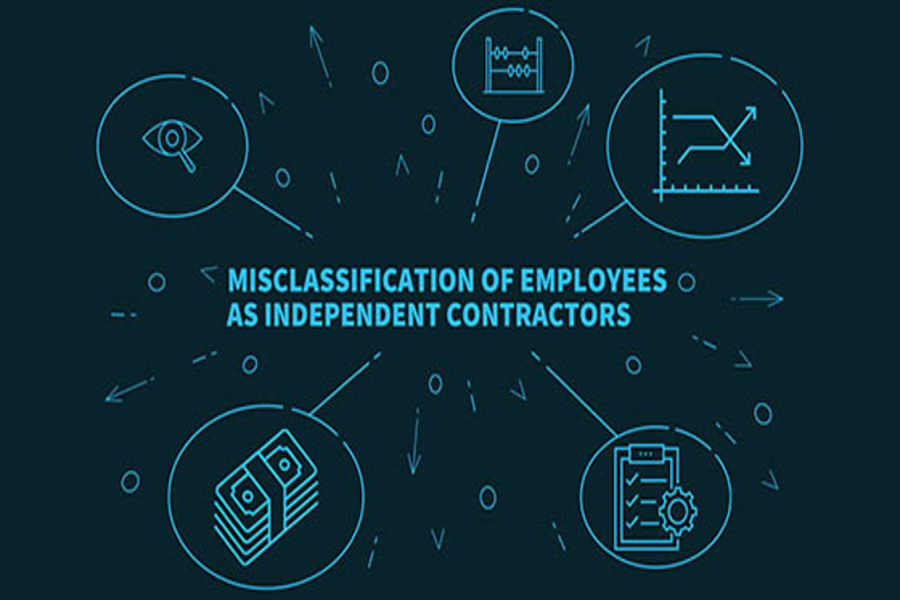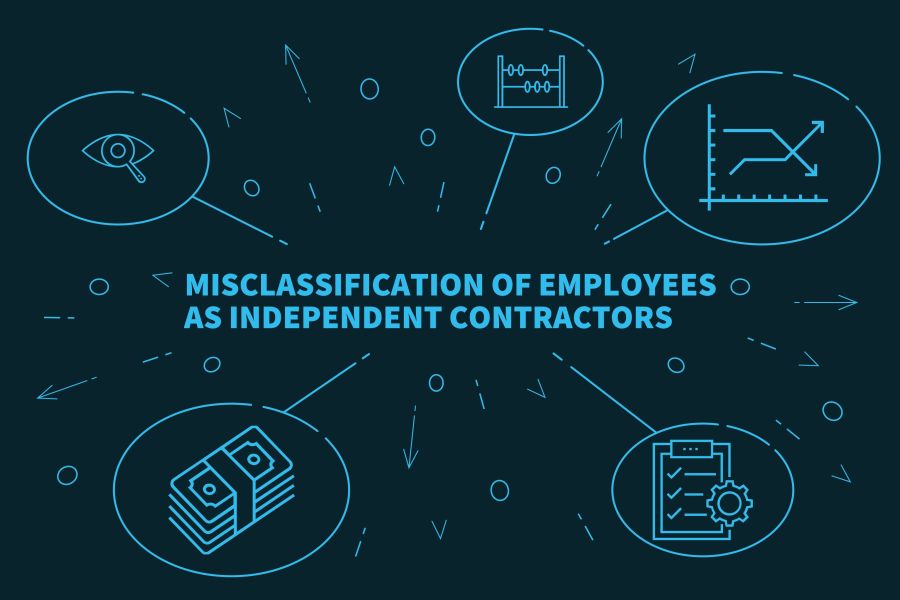Many businesses use independent contractors to help keep their costs down — especially in these times of staff shortages and inflationary pressures. If you’re among them, be careful that these workers are properly classified for federal tax purposes. If the IRS reclassifies them as employees, it can be an expensive mistake. The question of whether a worker is an independent contractor or an employee for federal income and employment tax purposes is a complex one. If a worker is an employee, your company must withhold federal income and payroll taxes and pay the employer’s share of FICA taxes on the wages, plus FUTA tax. A business may also provide the worker with fringe benefits if it makes them available to other employees. In addition, there may...

As posted to IRS.gov as Tax Tip 2022-117 on 8/2/2022 A business might pay an independent contractor and an employee for the same or similar work, but there are key legal differences between the two. It is critical for business owners to correctly determine whether the people providing services are employees or independent contractors. An employee is generally considered anyone who performs services, if the business can control what will be done and how it will be done. What matters is that the business has the right to control the details of how the worker's services are performed. Independent contractors are normally people in an independent trade, business or profession in which they offer their services to the public. Independent contractor vs. employee Whether a worker is an independent...
Many businesses use independent contractors to help keep their costs down. If you’re among them, make sure that these workers are properly classified for federal tax purposes. If the IRS reclassifies them as employees, it can be a costly error. It can be complex to determine whether a worker is an independent contractor or an employee for federal income and employment tax purposes. If a worker is an employee, your company must withhold federal income and payroll taxes, pay the employer’s share of FICA taxes on the wages, plus FUTA tax. A business may also provide the worker with fringe benefits if it makes them available to other employees. In addition, there may be state tax obligations. On the other hand, if a worker is an independent...
As a result of the coronavirus (COVID-19) crisis, your business may be using independent contractors to keep costs low. That said, are your independent contractors properly classified for federal tax purposes? If the IRS reclassifies them as employees, it can be an expensive mistake. The question of whether a worker is an independent contractor or an employee for federal income and employment tax purposes is a complex one. If a worker is an employee, your company must withhold federal income and payroll taxes, pay the employer’s share of FICA taxes on the wages, plus FUTA tax. Often, a business must also provide the worker with the fringe benefits that it makes available to other employees. And there may be state tax obligations as well. These obligations don’t...
Classifying a worker as an independent contractor frees a business from payroll tax liability and allows it to forgo providing overtime pay, unemployment compensation and other employee benefits. It also frees the business from responsibility for withholding income taxes and the worker’s share of payroll taxes. For these reasons, the federal government views misclassifying a bona fide employee as an independent contractor unfavorably. If the IRS reclassifies a worker as an employee, your business could be hit with back taxes, interest and penalties. Key factors When assessing worker classification, the IRS typically looks at the: Level of behavioral control. This means the extent to which the company instructs a worker on when and where to do the work, what tools or equipment to use, whom to hire, where to...
Classifying workers as independent contractors — rather than employees — can save businesses money and provide other benefits. But the IRS is on the lookout for businesses that do this improperly to avoid taxes and employee benefit obligations. To find out how the IRS will classify a particular worker, businesses can file optional IRS Form SS-8, “Determination of Worker Status for Purposes of Federal Employment Taxes and Income Tax Withholding.” However, the IRS has a history of reflexively classifying workers as employees, and filing this form may alert the IRS that your business has classification issues — and even inadvertently trigger an employment tax audit. Contractor vs. employee status A business enjoys several advantages when it classifies a worker as an independent contractor rather than as an employee....







